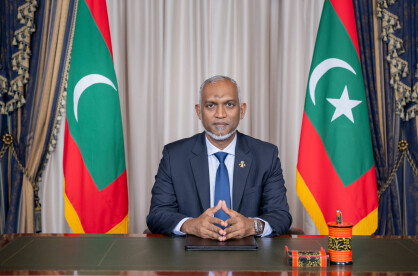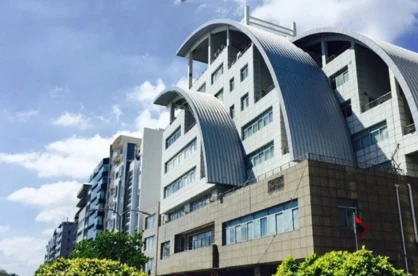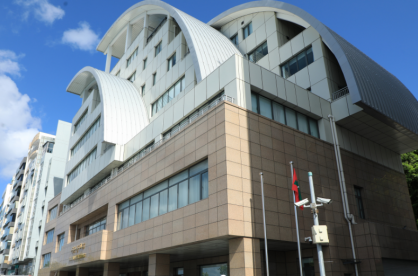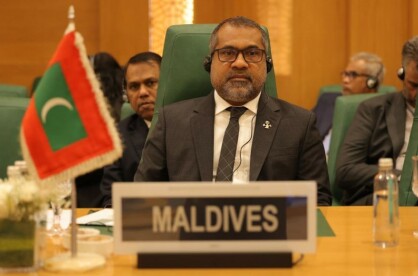The Dhapparu jurisdiction
Lessons learned from recent developments should be to always to keep the pressure on to keep administrations accountable.

Source: Twitter - Transparencymv
Lessons learned from recent developments should be to always to keep the pressure on to keep administrations accountable.

Source: Twitter - Transparencymv
In 2010, the Maldivian Government leased Dhapparu island to Noomadi Resorts and Residences Anstalt for the development of 50 luxury villas in return for the construction of 500 housing units in Kelaa, Baarah, Hoarafushi and Ihavandhoo in Haa Alifu Atoll. The then-cabinet, on 3 August 2010, classified Dhapparu as an uninhabited island. However, in 2016 the government cancelled the project citing delays in completion, and the lease of Dhapparu was subsequently cancelled.
On 15 December 2019, President Ibrahim Mohamed Solih ratified the eighth amendment to the Decentralisation Act, which provides councils with more fiscal and legal autonomy, while ensuring that 100 percent of the revenue from leasing land, islands and lagoons in the island's jurisdiction goes to the council. The amendment also requires councils to prepare island development and land use plans, in line with the national development plan, and to submit the said plans for approval. The amendment also specifies very clearly that the ownership of all movable and immovable assets and resources within the council's jurisdiction falls on it. The idea was for full implementation of decentralisation by ensuring councils had the resources to carry out development-related endeavours, a main pillar of the current government's election manifesto.
It was against this background that President Solih, on 18 March 2020, declared the return of Dhapparu to Filladhoo's jurisdiction. Dhapparu is in the same lagoon and landmass as Filladhoo. All was well, and the island community initiated plans to use Dhapparu for development and resource mobilisation, by including plans for it in its island development plan.
In July 2020, however, the Minister of Economic Development Fayyaz Ismail, in a meeting of a parliament committee, outlined plans for a Second Home Resident Pilot Project, under which villa owners will also be provided with residence visas to stay in the Maldives, in a move to diversify the Maldives' tourism product. On 29 August 2021, President Solih issued a resolution declaring that Dhapparu has again been removed from Filladhoo's jurisdiction — the Decentralisation Act allows the government to remove such assets from under council jurisdiction. However, the people of Filladhoo expressed concerned, mainly because of the sudden move, and because they had not been consulted at all. Subsequently, the island community, as well as Transparency Maldives, raised their concerns over the government not having consulted the community in such a major decision.
The island community on 21 September, submitted a petition to parliament, requesting for Dhapparu to be returned. The government then, in the face of the public outcry, announced on 22 September that it was in consultations with the community and said it will not do anything against the wishes of the people.
For a government that came to power on the pledge of decentralisation and 'power to the people,' such rash decisions, without even the veneer of consultations, speaks volumes. Is the government serious about decentralisation or was it more of the same as the country has always been subject to from its ruling class?
On 4 October, the administration once again changed its mind; President Solih, perhaps reminded of his own words, in February 2019, when he said "when the council's powers are stripped away by a centralised government, isn't the role of the councils meaningless? This is not how the decentralisation policies I know work.”
Were the actions of the Chief Executive of the nation in reversing his Cabinet’s stand on Dhapparu in service to true autonomy and an earnest engagement in the decentralisation process? Most signs, and more tellingly, past actions in the face of even the president’s own “policy,” point to 'no,' as time and again the commercial interests of the central government has taken precedence over handing over full autonomy to the rest of the nation.
While Dhapparu might have been “released” the lesson here might not be that governments will no longer peruse such actions without consultations. However, the lesson one should definitely take away here is to hold the government’s feet to the fire when they choose to do so again and keep the pressure on until they do what is right by the people — because even then the people of the Maldives have no guarantees what the government, or outside interests, will do when it comes to the possibility of exploiting the islands and other public assets in order to line the state coffers with money.



